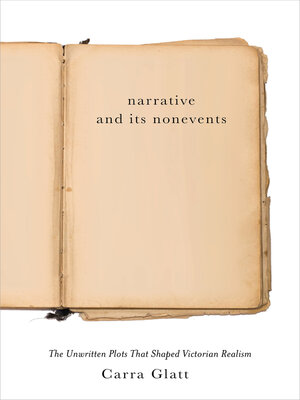Narrative and Its Nonevents
ebook ∣ The Unwritten Plots That Shaped Victorian Realism · Victorian Literature and Culture
By Carra Glatt

Sign up to save your library
With an OverDrive account, you can save your favorite libraries for at-a-glance information about availability. Find out more about OverDrive accounts.
Find this title in Libby, the library reading app by OverDrive.



Search for a digital library with this title
Title found at these libraries:
| Library Name | Distance |
|---|---|
| Loading... |
This book is about what does not happen in the Victorian novel. The description may sound absurd, yet consideration of alternatives to a given state of affairs is crucial to our understanding of a novel. Plot emerges out of the gradual elimination of possibilities, from the revelation, on the first page of a work, that we are in nineteenth-century London and not sixteenth-century Paris, to the final disclosure that Pip returns home too late to marry Biddy but is now free to pursue his lost love Estella.
Through careful examination of the plots of such classics as Charles Dickens's Great Expectations, Charlotte Brontë's Villette, Wilkie Collins's The Moonstone, Jane Austen's Pride and Prejudice, Henry James's The Ambassadors, Elizabeth Gaskell's Mary Barton, and others, Glatt argues for the central role of these "unwritten plots" in Victorian narrative construction. Abandoning the allegorical mode—in which characters are bound by fixed identities to reach a predetermined conclusion—and turning away from classical and historical plots with outcomes already known to audiences, the realist novel of the Victorian era was designed to simulate the openness and uncertainty of ordinary human experience. We are invested in these stories of David Copperfield or Elizabeth Bennet or Lucy Snowe in part because we cannot be entirely sure how those stories will end. As Glatt demonstrates, the Victorian novel is characterized by a proliferation of possibilities.







